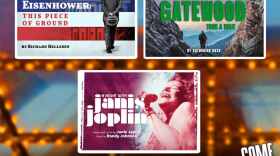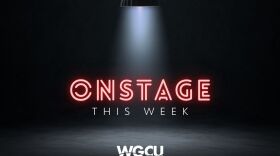When you think about the great music of science fiction, a few staples spring to mind — say, the theme from the classic Star Trek series, or John Williams' compositions for the Star Wars movies.
Nathan Johnson, the composer for the new time-travel thriller Looper, wanted to break with tradition. Instead of going for that slick, orchestral sound, he immersed himself in the world of the film to find his source material.
"I actually moved down to New Orleans, where they were shooting the movie," says Johnson, "and just spent a month wandering around the city, walking around the sets, gathering anything that struck my ear."

That could include the sound of fingers drumming on railings, or the beep and hum of a microwave oven. Johnson gathered his sounds in the field, then used software to turn them into playable instruments. He says one fun challenge of the process was thinking of all the sounds a given object could produce.
"One afternoon I brought Noah Segan, the actor who plays Kid Blue, into the studio," Johnson says. "We recorded all the sounds of his gat gun from the movie — so not just the firing of the gun, but the actual cocking mechanism, the way the barrel spun around, all these little clicks and pops."
Johnson says he wanted the film's score to feel like an organic and inextricable part of its world.
"I'm really drawn to imperfection in music," he says. "So I took the same approach when I was gathering these sounds, rather than using a library where everything has been sampled perfectly and recorded in the studio. Part of it was just to get our own stamp on it so that the world of Looper, auditorily, felt really unique."
This story originally ran Oct. 11, 2012.
Copyright 2020 NPR. To see more, visit https://www.npr.org. 9(MDAyMTYyMTU5MDEyOTc4NzE4ODNmYWEwYQ004))








